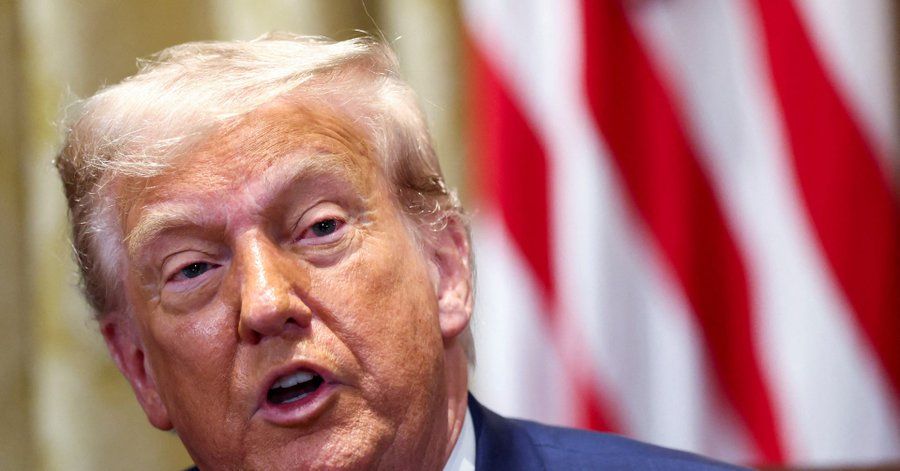Trump’s latest trade strategy puts EU goods under higher U.S. tariffs than the UK, triggering diplomatic concerns and economic debates.
Written by ace
Tags: Donald Trump trade policy, EU tariffs, UK-US trade deal, Trump 2025 economy, EU vs UK tariffs, post-Brexit trade, US foreign trade policy, Trump economic strategy, trade war 2.0, global trade politics
Trump’s New Trade Equation: EU to Pay More Than the UK?
In yet another bold move that’s stirring the global economic waters, former U.S. President Donald Trump — now the Republican front-runner for the 2025 election — has proposed a trade framework that would impose higher tariffs on European Union (EU) exports compared to those coming from the United Kingdom (UK). While the idea has not yet been officially implemented, insiders claim the policy is already being drafted behind closed doors as part of Trump’s “America First 2.0” economic plan.
The message is loud and clear: Trump sees post-Brexit Britain as a more “friendly trade partner” than the Brussels-led EU bloc. And the European Union? It’s now seen as a regulatory giant unfairly benefitting from American markets.
But this policy twist opens a floodgate of questions. Is it realistic? Is it legal under global trade norms? More importantly, what does it mean for the already fragile U.S.–EU relationship?
Context: The EU vs. UK Trade Reality
Since Brexit, the U.S. has had to navigate two parallel tracks — one with the 27-member European Union, and another with the newly independent United Kingdom. While the UK has shown eagerness to strike individual trade deals and reduce red tape, the EU continues to operate under a centralized model — one that Trump and many of his allies have criticized for being “anti-American industry.”
During Trump’s first term, trade tensions with the EU escalated dramatically. Aluminum and steel tariffs, digital tax threats, and aircraft subsidy battles all contributed to the growing rift. The UK, on the other hand, was largely spared — partly due to its limited market size, and partly due to shared political and military ties.
In Trump’s eyes, the UK has become a “freedom ally” post-Brexit, while the EU has become a “bureaucratic competitor.”
The Tariff Framework: What We Know So Far
Sources close to Trump’s 2025 campaign suggest that the plan includes:
- A blanket 15% tariff on most EU-manufactured goods, especially cars, wine, cheese, and luxury items.
- A reduced or zero tariff plan for UK goods, particularly pharmaceuticals, defense equipment, and textiles.
- The possibility of excluding EU nations like Hungary or Poland if they sign separate bilateral deals with the U.S., effectively weakening EU unity.
It’s a strategy that plays off divide-and-rule tactics, aiming to create economic leverage while rewarding countries that play by Trump’s rules.
Why Target the EU?
Trump has long accused the EU of treating the U.S. unfairly in trade negotiations. “They sell us Mercedes, wine, and tech goods without issue, but when we try to export American-made products, they hit us with massive tariffs,” Trump said during a recent rally.
He also blames EU agricultural and environmental regulations for keeping American food and biotech companies out of Europe — a point of irritation for U.S. farmers and industrial lobbies.
From a strategic standpoint, punishing the EU with tariffs serves two purposes:
- Pleasing domestic manufacturers and voters who feel European competition has hurt their industries.
- Applying pressure on the EU to soften its stance in future trade negotiations.
UK’s Sweet Spot — But at What Cost?
For the UK, this could be a golden opportunity — or a double-edged sword.
A special trade deal with the U.S. would boost certain exports and help counteract Brexit’s economic hangover. But it would also mean choosing sides in a growing geopolitical and trade split. Aligning too closely with Trump’s U.S. could damage UK relations with the EU, which remains its largest trading partner.
Furthermore, any trade deal under Trump will likely come with political strings — such as support for U.S. foreign policy positions, defense spending alignment, or alignment on tech policies targeting China.
For a country already facing internal tensions over Brexit, inflation, and global standing, this is a delicate balancing act.
Europe’s Reaction: Cold, Calculated, and Concerned
European leaders haven’t officially responded to the new tariff rumors — but their silence speaks volumes.
Privately, EU diplomats have expressed concern that Trump’s return to the White House would reopen old wounds in transatlantic relations. The EU has spent years rebuilding bridges with President Joe Biden, emphasizing multilateralism, climate cooperation, and fair trade.
A second Trump term could shatter that progress.
Some analysts believe the EU might retaliate with counter-tariffs, targeting American tech firms, agriculture, and aerospace. Others suggest the EU will try to strengthen ties with other global players — like China or India — to reduce dependency on the American market.
Is This WTO-Approved?
From a legal standpoint, selectively favoring the UK over the EU could violate World Trade Organization (WTO) rules, which demand non-discriminatory treatment of trade partners unless they’re part of a formal free trade agreement.
If Trump’s plan does not go through proper channels, it could result in WTO disputes and even international sanctions. But Trump has never shown much faith in multilateral institutions like the WTO, and in his 2020 presidency, he frequently bypassed them or threatened to withdraw entirely.
So yes, it might be illegal — but that’s unlikely to stop him.
My Opinion: Trump Is Playing a Dangerous Game
There’s no denying that Trump is a master strategist when it comes to political optics. “Higher tariffs on the EU” sounds good to many blue-collar American voters who feel forgotten in the global economy. But this move is more than a campaign tactic — it’s a gamble that could damage America’s role in the global trade order.
Favoring the UK at the EU’s expense might win short-term points but lose long-term allies. It risks creating a fractured Western alliance at a time when unity is critical — from Russia’s aggression to China’s rise.
This isn’t just about economics. It’s about trust, diplomacy, and how America is seen on the world stage. Playing one partner against another may work in business — but in geopolitics, it creates ripple effects that are harder to control.
Final Word: A New Trade War Brewing?
As Trump gears up for a possible second term, his trade doctrine is making headlines once again. But this time, the battle lines aren’t just between the U.S. and China — they may be drawn closer to home, between old allies.
The European Union isn’t just another trading partner. It’s a foundational pillar of Western democracy and economics. Provoking it with unfair tariffs while cozying up to the UK might be a smart campaign line — but it could also be the first shot in a new, global trade war.
Only time — and ballots — will tell where this economic chess game leads.

